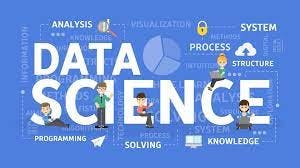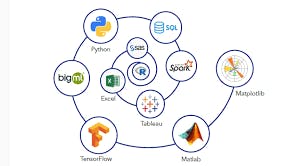The Top Tools Every Data Scientist Needs in their Toolkit

Data science is a rapidly growing field, and with it comes a plethora of tools and technologies that can help make the job of a data scientist easier and more efficient. From data visualization to machine learning, the right tools can make all the difference when it comes to effectively analyzing and interpreting large sets of data. In this post, we’ll take a look at some of t

he best tools that every data scientist should have in their toolkit.
Python: Python is one of the most popular programming languages in the field of data science. It’s a versatile language that can be used for a wide range of tasks, from data cleaning and manipulation to building machine learning models. Some of the most popular Python libraries for data science include Pandas, Numpy, and Scikit-learn.
R: R is another popular programming language for data science. It’s particularly useful for statistical analysis and visualization, and has a wide range of libraries and packages available for data manipulation and analysis. Some of the most popular R libraries include ggplot2, dplyr, and tidyr.
Jupyter Notebook: Jupyter Notebook is a powerful tool for data scientists that allows them to create and share interactive documents that contain live code, visualizations, and narrative text. It’s a great way to collaborate on projects and share your work with others.
Tableau: Tableau is a popular data visualization tool that allows you to easily create interactive, visually appealing charts and graphs. It’s a great tool for quickly exploring and understanding large sets of data, and can be used to create dashboards and reports that can be shared with others.
Apache Spark: Apache Spark is a powerful tool for working with large sets of data. It’s a fast, in-memory data processing engine that can be used for a wide range of tasks, from data cleaning and manipulation to building machine learning models.
SQL: SQL (Structured Query Language) is a programming language that’s used for managing and manipulating databases. It’s a crucial tool for data scientists, as it allows them to easily extract and analyze data from large databases.
Git: Git is a version control system that allows you to keep track of changes to your code and collaborate on projects with others. It’s an essential tool for data scientists, as it allows them to easily share and collaborate on projects, and keep track of changes over time.
Cloud computing platforms: Cloud computing platforms such as AWS, Google Cloud, and Azure allow data scientists to easily scale up their computing resources as needed. This is particularly useful when working with large sets of data, or when building and deploying machine learning models.
These are just a few of the many tools available to data scientists. As the field of data science continues to grow and evolve, new tools and technologies will continue to emerge. However, by mastering these essential tools, data scientists can be well on their way to becoming proficient in the field.